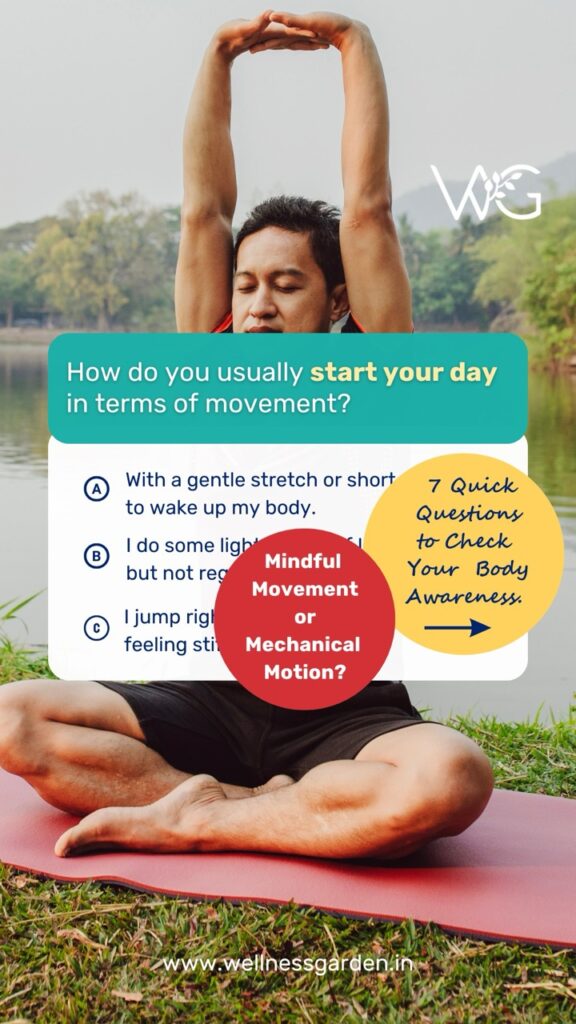Menopause Wellness: Restorative Yoga & Beyond
- Movement
- 3 mins
- March 25, 2024
- Sheela Krishnaswamy
- Menopause, Relaxation
Do you or anyone you know find menopause to be uncomfortable? Our ground-breaking Restorative Programs will help you wave goodbye to those annoying symptoms!

We at our wellness garden are aware of the challenges involved with this life-changing stage. For this reason, we have developed a detailed plan to promote your overall health during menopause. Our restorative yoga program is intended to help you regain physical and mental balance while easing symptoms including hot flashes, mood swings, and exhaustion. This article examines what approach every woman should take and the scientific basis for how meditation and yoga practices might ease suffering and enhance overall health during this period of life change. Dr. Sheela Krishnaswamy, a nutrient expert reveals the top 3 nutrients that come to mind when you think of women’s health are calcium, iron, and folate; and the most common health concerns that bother women are weight, aging, and menopause
Overview
Surprisingly, Menopause, a natural transition in a woman’s life, marks the end of menstruation and fertility. While it’s a normal part of aging, some women may experience discomfort during this time. After a full year without a period, a diagnosis is usually adopted. Menopause can occur at age 51 approx. However, it tends to happen in the middle of the 40s and 60s. The signs of menopause might differ from woman to woman, but a few of the more prevalent ones are mood swings, increased weight, dryness in the vaginal area, hot flashes, and nocturnal sweating. According to a research report by Mayo Clinic, 80% of women are facing the problem of hot flashes during their menopause.
The positive aspect is that every woman has to take precautions from these unpleasant symptoms and enhance their general health by trying a variety of natural treatments (yoga) and holistic procedures. The symptoms of menopause can be minimized and the chance of chronic diseases is reduced by doing daily physical activity and maintaining a balanced diet.
There is the possibility of an increase in emotional and physical changes caused by menopause. Although it’s not a disease that needs to be treated, it is an adaptable phase. This is exactly holistic wellness and yoga for restoration can work effectively to manage discomfort and enhance your overall health.
Meditation and stress management are given priority in restorative yoga’s style-focused practice. In contrast to energetic yoga, restorative yoga creates entirely supported positions with the help of props like blocks, pillows, and bolsters. Then you hold these positions for up to fifteen minutes at a time, giving your entire body a chance to entirely let go of stress and relax.
Symptoms During Menopause
There are many symptoms linked to menopause, however, a few of those that are most prevalent are as follows:
- A hot flash is an erratic, strong heat wave that is usually accompanied by moisture, skin flushing, particularly on the cheeks, neck, and chest area and an irregular heartbeat. They occur at any time and can be highly disturbing.
- There is a situation when even if you haven’t consumed much fluid, you can experience an intense, unexpected urge to pee more than usual.
- Declined libido: Hormonal imbalances frequently cause a decline in sex desire.
- Reduced vaginal lube or vaginal dryness may trigger irritation, burning, and pain in sexual activities.
- Having abrupt mood swings, such as being joyful one moment and depressed the next.
- A frequent issue, whose exact cause is unknown, is pain and discomfort in the joints and muscles.
- Mind fog: having trouble focusing, forgetting things, and feeling disoriented mentally.
- Weight shifts: Whereas some women might drop kilograms, others might put on weight.
Understanding the RRRR approach
Using a wide range of wellness practices and therapies, it is a comprehensive framework designed to enhance your general well-being by treating the physical, mental, and spiritual aspects by following these steps:
- REST: Yoga poses that encourage calmness and better sleep. Assisted stretches, restorative yoga postures, and yoga nidra techniques can all help calm the mind and promote more restful sleep, which might be disturbed throughout menopause.
- REJUVENATE: The phase of menopause may constitute a period of meditation and transformation. During this transitional stage, taking care of oneself through rituals, time spent in nature, and interests are rejuvenating activities that may help women feel reenergized and reconnected to themselves.
- REBALANCE: The human body’s normal balance can be disturbed during menopausal hormone imbalances. Every cell of the body goes under regenerate during this time. Women can help themselves adapt to all of these changes and retain general well-being by emphasizing rebalancing measures, including a balanced diet, frequent exercise, yoga, and reducing hot flashes, and night sweat problems.
- RENEW: Menopause is usually seen as a period of individual growth and regeneration. Maintaining one’s own mental, emotional, and inner health as well as adopting a positive attitude while accepting new chances are all necessary to welcome this stage with a feeling of rebirth. This could result in a feeling of satisfaction and energy both before and after menopause.
Study Findings
- A review published in Maturitas Journal that yoga and other exercises are effective in menopausal symptoms.
- An inspirational story of Wanitha Ashok discusses exercise, and options and prioritizes your health during menopause.
- A table round by Sagar Hospital, where women, doctors, and experts discuss approximately 61% of the population have gone with osteoporosis (especially women’s)after postmenopausal.
Tips & Suggestions While Facing Menopause

Generally speaking, there isn’t a set list of tasks you have to perform during menopause. To make the process easier and enhance your general well-being, there are several kinds of measures that you can practice like holistic and restorative practice.
Advice
- Lifestyle adaptations: optimizing excess weight with nutrition and physical activity, which may greatly improve symptoms, mood, and the quality of sleep.
- Dietary habits: Include whole grains, veggies, fruits, and lean protein. Avoid caffeine, alcohol, and packaged foods, as they might worsen certain signs.
- Stress Management Techniques: Adopt methods like mindful breathing, the practice of yoga, ayurveda, and massage can help reduce stress and enhance your overall health.
- Restful sleep means keeping a cool, dark sleeping environment, setting up a sleep routine, and starting a calming nighttime ritual.
- Adding supplements: Before beginning any new supplement regimen, speak with experts. Black cohosh and morning glory oil, etc help mood swings and hot flashes.
- Hormone replacement therapy is a useful way of managing menopause symptoms for specific women. This process will be done after consulting your healthcare provider about this to determine if it’s suitable for you.
- Holistic Therapies could also help in the menopausal phase such as acupuncture, herbal teas, and detox.
Healing Process
Menopause is not a disease that requires treatment in and of itself. It is an organic change in your body. But it’s essential to control the symptoms and seek out positive strategies to deal with changes in your life. Here are a few vital facts regarding the recovery process:
- Put Long-Term Management First: a lifetime shift, menopause. The objective is to discover how you can manage discomfort and stay healthy throughout this phase of life.
- Take Care of Your Health: Every woman has a distinct menopausal experience. Maintain an eye on what’s effective for you and adjust your plan of action as required.
- Consider Assistance: Don’t be afraid to discuss your anxieties with your doctor or nurse. Therapists can offer guidance as well as support during the stages of menopause.
- Accept change as an opportunity. Finding yourself and strength can occur all through menopause. Analyze the positive benefits of this fresh phase of your life’s journey.
End Note
Holistic and restorative therapy can be useful instruments in the management of menopausal symptoms. These strategies, along with a nutritious diet, will help you through this change more easily and have an even more confident and relaxing menopause.
Are you ready to embrace a life of comfort and vitality during menopause? Stay tuned for more details on how you can join our Restorative Yoga Program with Holistic Therapies and say hello to a brighter, more balanced future!
If you’re interested in practicing the aforementioned restorative therapy under our guidance, feel free to get in touch with us for personalized restorative therapy consultations and more.
A Word from WG
Wellness Garden is your committed partner in seeking comprehensive natural and holistic therapies to address all your pain and wellness requirements. Our approach encompasses the entirety of your body, mind, and environment, integrating body, mind, and nutrition therapy and various other techniques.
Whether you’re facing physical or mental health concerns, life hurdles, or simply aiming to enhance your overall well-being, we’re here to provide the support you need. Get in touch with us to explore the possibilities and embark on your journey towards holistic therapy and improved health.
- Table of Contents
- • Introduction
- • Symptoms
- • Study Findings
- • Tips & Suggestions
- • A Word from WG
Recent Posts
Join Our Newsletter
End note from WG Team
Dr. Geetha Kamath
Take the next step in your wellness journey. Discover how our curated non-allopathic therapies can complement newfound knowledge at www.program.wellnessgarden.in or reach out for personalized guidance to our team at info@wellnessgarden.in.
Disclaimer: This information is provided for educational purposes and should not be construed as medical advice. Please consult with healthcare practitioners before undertaking any changes in wellness routines or adding new therapies.
Latest Blogs
Check out some of your blogs related to your interest.
- January 23, 2026
- Dr. Krishnan Narayana Pisharody, BAMS
- 3 Mins

- January 22, 2026
- Dr. Shaji Kannoth
- 3 Mins

- January 16, 2026
- Dr. Rudresh
- 3 Mins

- September 21, 2025
- Dr. Miuru Jayaweera
- 3 Mins





